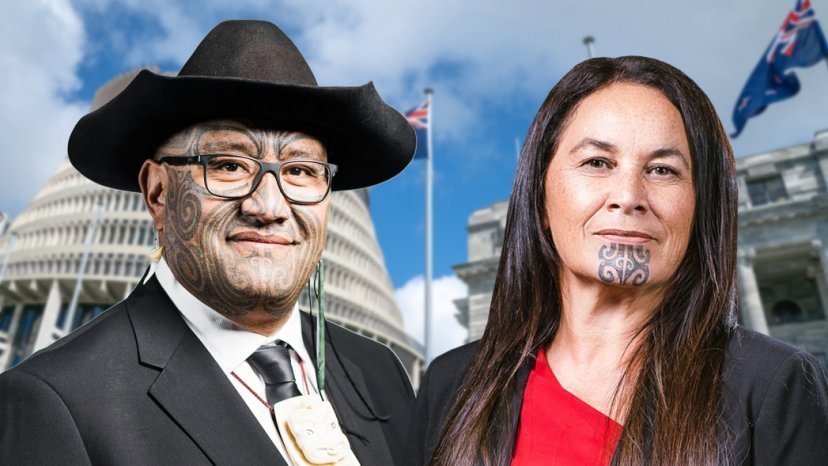
Increasingly Popular with the Demise of Labour Party Standard-Bearer Jacinda Ardern, the Maori Party Vows to Remove New Zealand from Five Eyes Surveillance Alliance
The Te Pāti Māori Party in New Zealand’s October 14 elections is campaigning on a genuine anti-imperialist platform and could be a significant factor in the election because of the declining fortunes of the country’s Labour Party.
Former Labour Party Prime Minister Jacinda Ardern announced the date of the election in a January 2023 speech in which she also made the surprise announcement that she was resigning as Prime Minister, and from Parliament and politics completely (she stepped down as PM in February and from Parliament in April). She has now vanished from public life.
Ardern had been the political equivalent of a rock star when she burst on the scene in 2017 and propelled the Labour party to an election victory. Her leadership was dubbed by the media “Jacindamania.” She was seen as a hip young female antidote to right-wing dinosaurs like Donald Trump, Boris Johnson and Jair Bolsonaro.
However, for a variety of reasons, she had gone from being her government’s greatest asset to being a liability. And her heart was no longer in it, as she wanted to spend more time with her daughter. In June 2023 her successors in Government rewarded her by anointing her as Dame Jacinda Ardern, “for services to the State.”
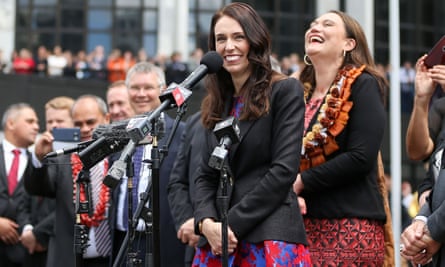
Ardern’s successor as Labour Party leader and, hence, Prime Minister, is Chris Hipkins, who was a senior Minister in Ardern’s Cabinet but not the Deputy Prime Minister nor the Labour Party Deputy Leader. In such circumstances, the new Leader is chosen by a vote of Labour’s Parliamentary caucus. This was academic, as Hipkins was unopposed, so the succession process was remarkably quick and harmonious (which was certainly not the case in previous Labour leadership changes). Hipkins thus took over just eight months before the election.
The historical odds are against him. In my lifetime (72 years) there have been several such unelected Prime Ministers from both rival governing parties (Labour and National). By unelected, I mean that their being Prime Minister was not endorsed by popular vote in an election won by their party. In every case, Governments headed by these unelected Prime Ministers have lost the first general election after they got the job—most recently in 2017.
New Zealand General Elections Are Fairly Prosaic Affairs
Hipkins wasted no time having what was dubbed “the bonfire of the policies,” dumping the more aspirational policies of Jacinda Ardern. (She became globally famous largely because of her acclaimed responses to events not of her doing, e.g., the 2019 Christchurch mosques’ massacres and the Covid pandemic. Policies that were of her doing produced much more modest or non-existent outcomes).
Hipkins proclaimed that all of his Labour Government’s efforts would be directed at “bread and butter issues,” in response to the cost-of-living crisis (one in which New Zealand is in company with the rest of the world). This is familiar territory for New Zealand elections, and one in which the Opposition National Party, a conservative party which has been in Government more than Labour during my lifetime, fancies its chances as the self-proclaimed party that can “manage the economy better.”
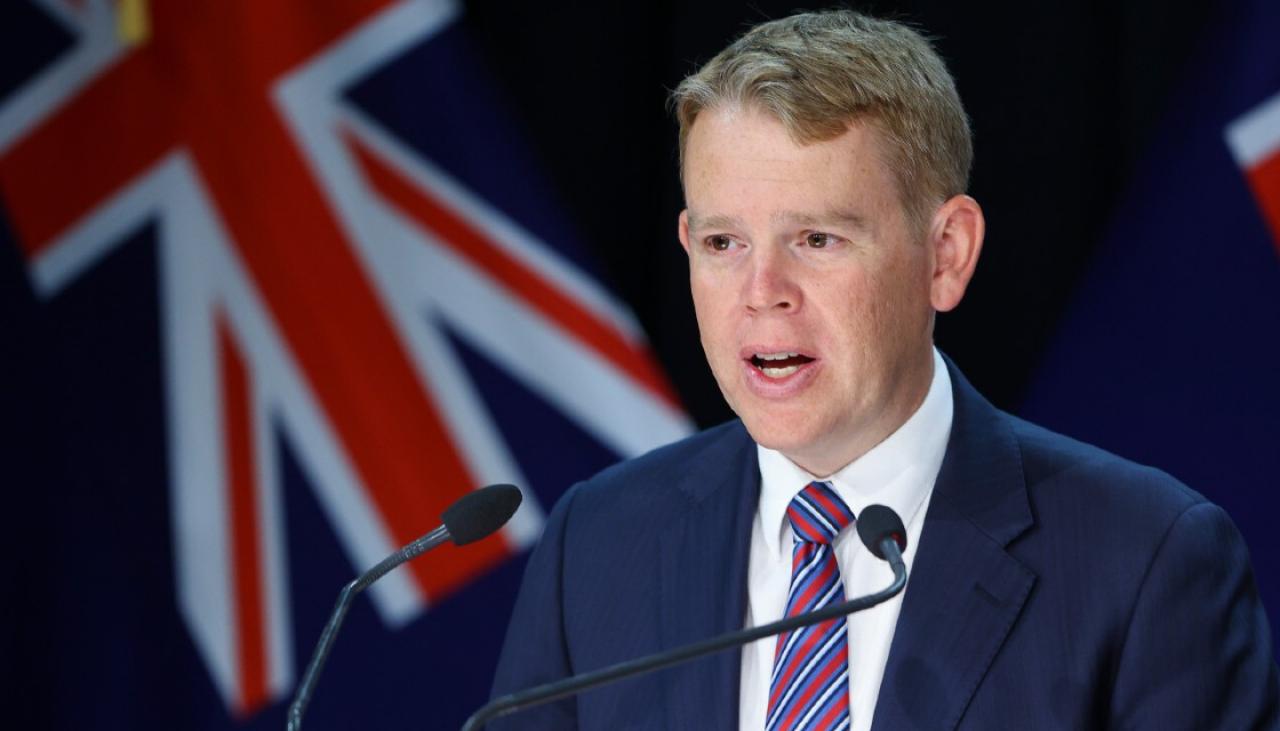
So far, so prosaic. A little context is in order. Since 1996 New Zealand has had a proportional representation electoral system. So, coalition Governments, headed by either National or Labour, have been the norm. Labour came to power in 2017 in coalition with a minor party (one which had been in coalition Governments with National in the 1990s and then with Labour in the 2000s).
But at the 2020 election—the Covid election—something unique happened in New Zealand’s modern political history. Labour won an outright majority, meaning that it needed no coalition partner (its 2017-20 partner was voted out of Parliament). Hundreds of thousands of National voters switched to Labour. The media quoted people as saying “I voted for Jacinda because she saved my life.”
Labour had an absolute mandate for its 2020-23 term, unheard of under a proportional representation system. It did not need any partners but it invited the Green Party Co-Leaders to be both Ministers outside Cabinet (one holds the extremely important climate change portfolio). But, despite having secured more than 50% of the 2020 election vote (something rarely ever achieved under the old “winner takes all” electoral system), the Ardern government sat on its hands, disappointing those who had voted for it expecting change.
One example: Despite the recommendations of a body that it had appointed (headed by a former Labour Minister of Finance and Deputy Prime Minister), Ardern refused to make any changes to taxes, specifically ruling out a capital gains tax, wealth tax or inheritance tax. This was so in an economy dominated by soaring house prices, making buying a home severely unaffordable, particularly for first-home buyers. National, on the other hand, offers tax cuts as its solution to every problem.
Te Pāti Māori Breaks Ranks
All indications are for an election focused on the cost of living, which is the norm. Issues like defense, foreign policy or intelligence rarely get a look in from one election to the next.
But one parliamentary party has put those issues front and center for the 2023 election. There are five parties in Parliament. The smallest is Te Pāti Māori (the Māori Party). Out of a total of 120 Members of Parliament, it has two MPs (its Co-Leaders), plus it has recently succeeded in luring a Māori Labour MP, a Minister outside Cabinet, to cross the floor and join it. So, three MPs.
Historically, Labour has had a very strong bond with Māori, New Zealand’s indigenous Polynesian people. The present Labour Government has the biggest number of Māori MPs and Cabinet Ministers in New Zealand’s history.

Te Pāti Māori was formed out of dissatisfaction with the previous (1999-2008) Labour Government, in the 2000s, and was initially headed by an MP who had been a Labour Minister. Under her leadership Te Pāti Māori enabled National to form a Government (2008-17). It was punished by voters for doing this and was voted out of Parliament in 2017, coming back with two MPs in 2020.
Opinion polls have consistently picked the 2023 election to be tight (some have Labour ahead, others have National). But there will be no 50%+ mandate this year; 2020 was a one-off. And polls have consistently predicted that Te Pāti Māori will play a post-election kingmaker role in forming a coalition—but only with Labour and the Greens; National has ruled out working with it.
“We Will No Longer Act As a Pacific Spy Base for the Five Eyes Alliance”
This is where it gets interesting—Te Pāti Māori is very different from its earlier Parliamentary incarnation. In February 2023 it announced its new defense, intelligence and foreign policy, which completely differentiates it from the four larger parties in Parliament: “Te Pāti Māori says a ‘transformative’ defense and foreign affairs policy will see its MPs vote against overseas military support, by New Zealand forces. Co-Leaders Debbie Ngarewa-Packer and Rawiri Waititi unveiled the neutrality policy during their Annual General Meeting…[I]f in power, they would withdraw from the Five Eyes security pact between Australia, New Zealand, Canada, the UK and the US.”
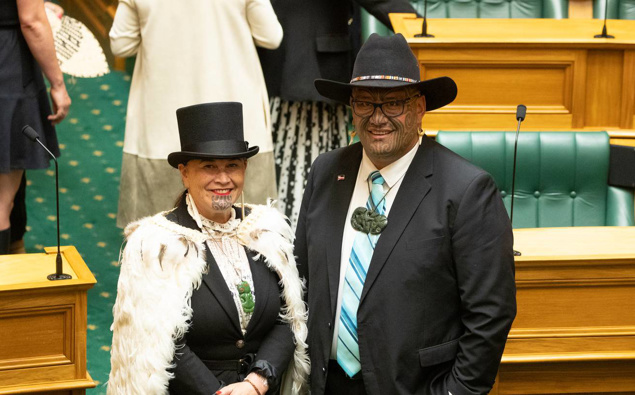
“We will no longer be a political football in the wars of imperial powers. We will no longer act as a Pacific spy base for the Five Eyes Alliance [U.S., Australia, Great Britain, Canada and New Zealand],” Waititi said. “We have determined a Māori-centric foreign policy and a Māori-centric defence policy shaped for us and by us without selling or trading our mana [authority/prestige] by just simply asserting it,” Ngarewa-Packer said.
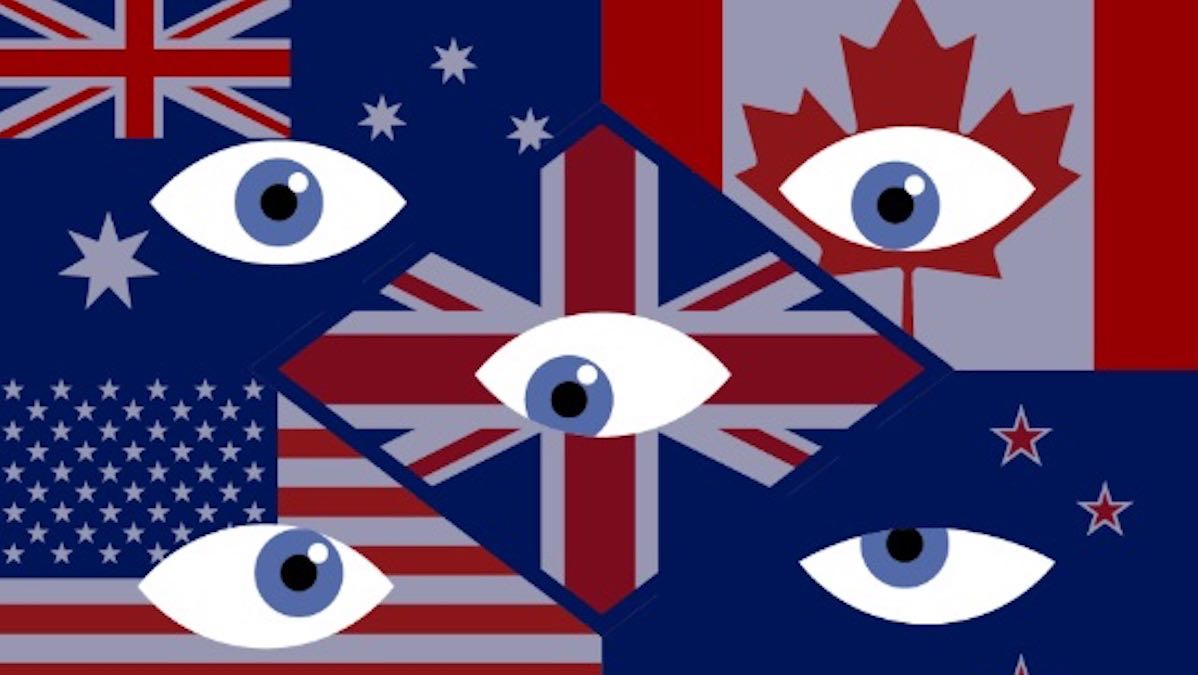
“The Time for War, Killing and Imperialism Is Over”
“Waititi said the party’s aspiration was for Aotearoa* to adopt neutrality policies similar to Switzerland. ‘In 1987 Aotearoa declared we were nuclear-free. Te Pāti Māori now declares Aotearoa must be militarily neutral, a Switzerland of the South Pacific,’ Waititi said.” [* Aotearoa is the Indigenous name for the country. It is very widely used by people of all races, in all contexts, and is the semi-official “co-name” for the country.—MH]
“Kudos was all the Māori Battalion got for its victories against Nazi Germany in World War II, Waititi said. ‘Our services were honoured by us not receiving any allotments to returned services housing or farms. Our services dispensed in Korea, Malaya, Vietnam and Afghanistan achieved nothing for us as a people,’ Waititi said. ‘We will no longer have our sovereignty determined by others, whether it is in Canberra, London, Washington, Beijing or Moscow.’”

“The party took heat from Ukrainian expatriates last year when Waititi claimed the Russian invasion of Ukraine was caused by the ‘politics of America, NATO, and other countries.” Ngarewa-Packer says Aotearoa should still “stand alongside indigenous peoples in their fight for their sovereignty over their own lands” and it supported the Government’s sanctions bill against Russia last year.
“The party would still fund a defence force but it would be a ‘support force for the Pacific, for our Polynesian world,’ and to tackle civil defence emergencies,” according to Ngarewa-Packer. ‘With the extreme weather events of the past few weeks [i.e., major floods and a very destructive cyclone (MH)], we’ve seen just how important it is that our defence force is focused on responding to threats to our own people,” she said.
“The time for war, killing and imperialism is over. Now is the time for peace and sovereignty for tangata whenua [people of the land (MH)] and indigenous peoples around the world. Aotearoa must be friends to everybody and enemies to nobody.’”
The significance of this position being declared by a Māori political party cannot be overstated.
Māori make up a significant chunk of the New Zealand military, and have a legendary history within it. It is very unusual, if not unprecedented, for any New Zealand Parliamentary party to publicly use words like “imperialism.” And it is even more unprecedented for a party to openly state that New Zealand quitting the Five Eyes alliance is one of its several conditions for joining a post-election coalition.
Comprised of the electronic intelligence agencies of the U.S., UK, Canada, Australia and NZ, the Five Eyes dates back to the immediate aftermath of World War II. New Zealand is definitely the smallest of the Eyes. Its’ main contribution, since the 1980s, is the Waihopai spy base, operated by the New Zealand Government Communications Security Bureau. Five Eyes has steadily expanded its mandate in recent years, becoming a more comprehensive political and military bloc.
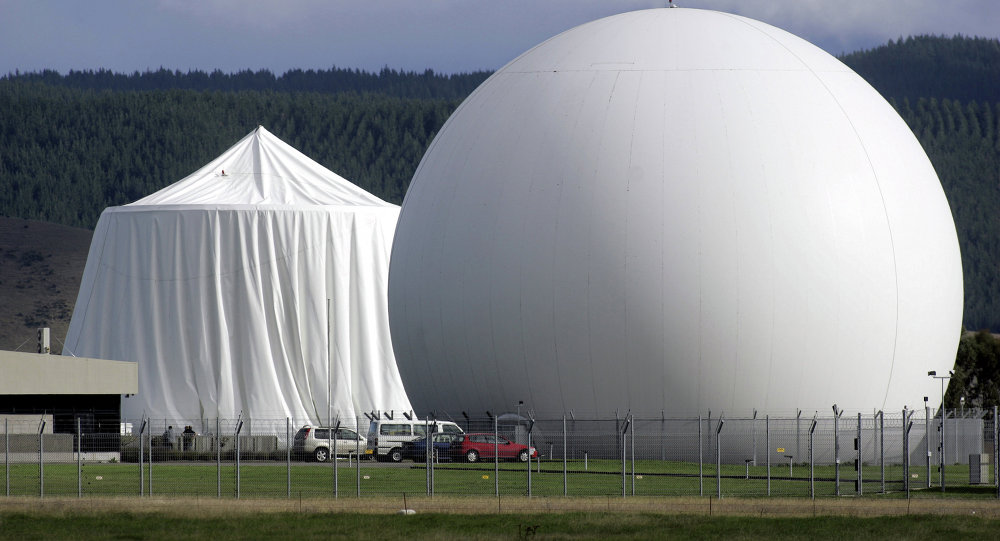
Demand for Military Neutrality
Te Pāti Māori President John Tamihere spelled out the party’s conditions for being a coalition partner in a May 2023 mainstream media interview: “And the one which will scare lots of horses is his demand for military neutrality. This, he says, means ‘being a friend to everyone and an enemy to no-one,’ and acting only to defend our own territory and act as a peacekeeper, but no longer being part of the Five Eyes spying compact with the U.S., UK, Canada and Australia, or, in his eyes, kowtowing to Australia’s military decisions.”
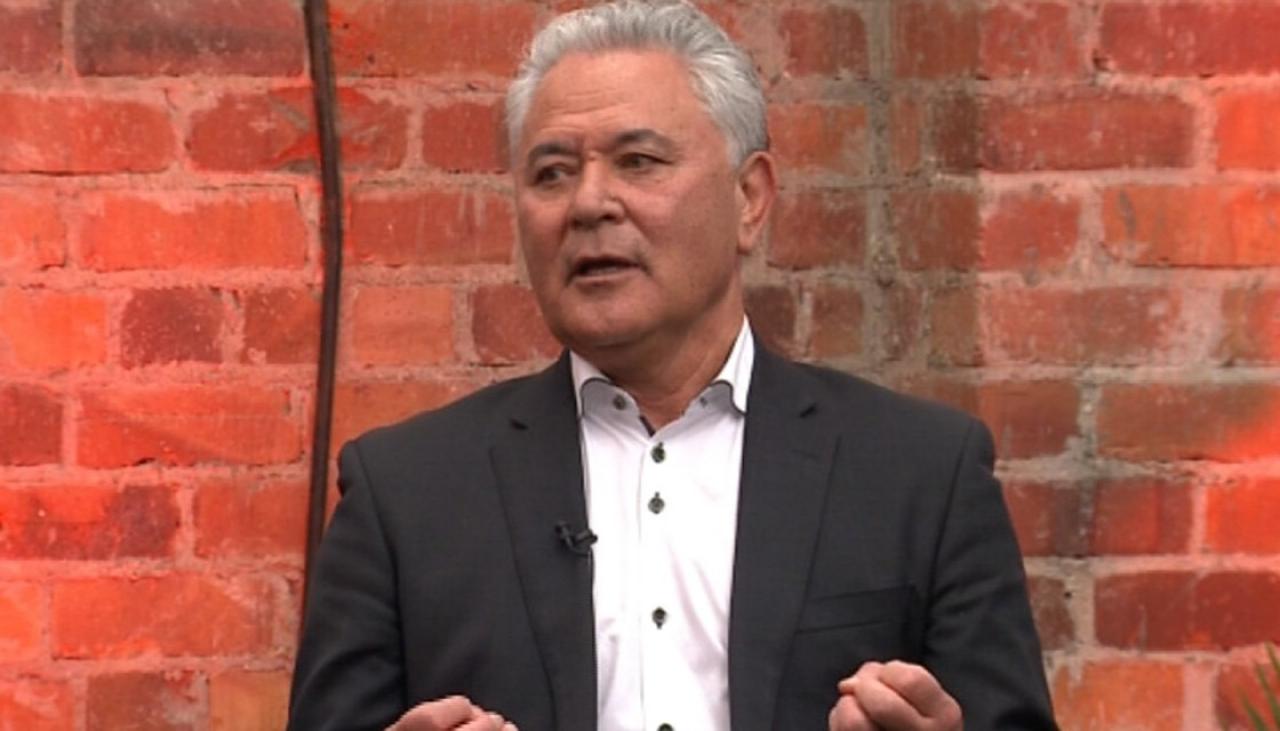
“And the Chinese? He’s got no problems there. They are a good trading partner; he wants Huawei here to provide telecoms competition (he has a thing about the cost of duopolies on the working man); doesn’t worry about them spying given how the whistleblower Edward Snowden showed how the CIA has a propensity to spy just as much on its friends as its enemies.”
Labour PM Defends Five Eyes
Not surprisingly, the Labour Government has reacted negatively to Te Pāti Māori’s coalition conditions. Prime Minister Chris Hipkins said: “Smaller parties, I think, need to be careful with whatever they issue in terms of ‘bottom lines’ or they could find themselves simply not able to be part of any governing arrangement at all. In regard to leaving the Five Eyes, the Prime Minister said that would be a bad and risky idea.”
“To withdraw from the intelligence alliance ‘would have potential consequences for Kiwis on a daily basis,’ he said. This intelligence alliance, between New Zealand, the UK, Canada, U.S. and Australia, was needed to protect the electricity grid, phone and Internet services, he said. ‘I don’t think it would be in New Zealand’s best interests to withdraw from the Five Eyes.’”
Greens Have Honourable Activist History on Five Eyes
The Green Party, which has more MPs than Te Pāti Māori (currently nine) and has been in Parliament continuously since 1996, also has progressive policies on defense, intelligence and foreign policy. I am the Organizer for the Anti-Bases Campaign, which has held protests at the Waihopai spy base virtually every year since 1988.
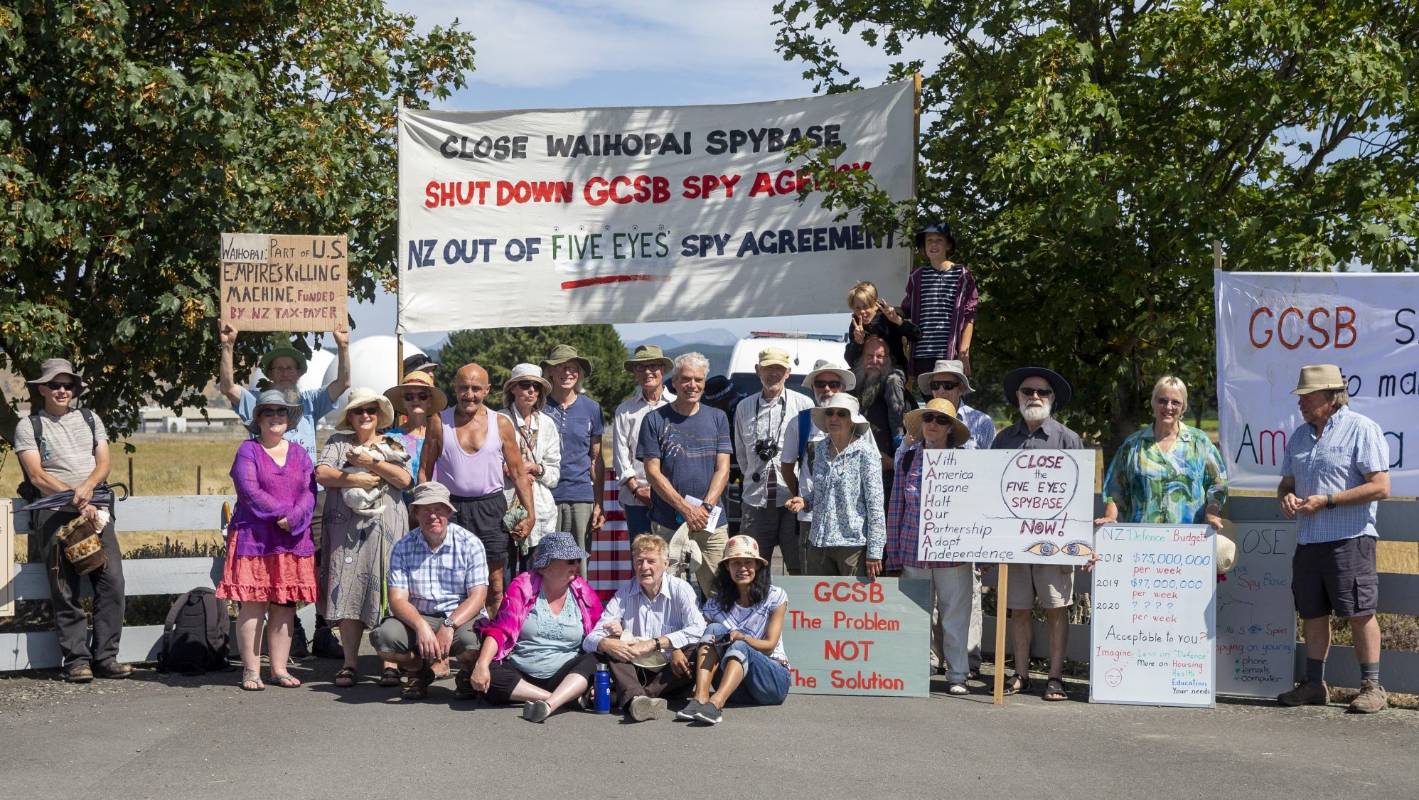
We have had every Green Co-Leader except one speak at those protests; there has only been one year since the Greens entered Parliament that we have not had a Green MP as a speaker at the base gate (and that was due to ill health). The most recent one to join us was also happy to join those climbing the outer fence to plant placards on the base grounds.
When he spoke at the February 2023 protest, he talked about “American imperialism,” a phrase you will never hear from any Labour MP. But the Greens have never stated that quitting Five Eyes (or anything else to do with intelligence, defense or foreign policy) is a condition for them joining, or supporting, a Labour government.
It remains to be seen if anything comes from this coalition dealmaking situation. But then again, momentous changes have to start somewhere. Fifty years ago, the idea of New Zealand declaring itself nuclear free, by law, seemed preposterous. There was a monumental campaign—and the country has been nuclear free since the late 1980s.
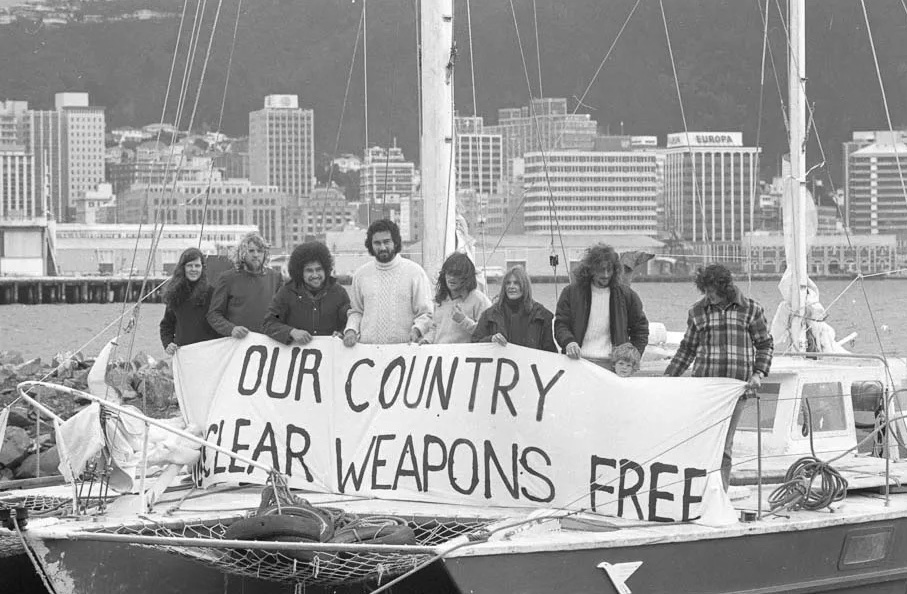
2014: The Election Where Spying Was an Issue
As a post-script: there was one very recent New Zealand election, 2014, where spying was a campaign issue. Here is a very brief summary. A German-American billionaire, Kim Dotcom, came to New Zealand in 2010 under a fast track immigration “investor plus” immigration scheme (someone who had invested $NZ10 million in NZ). His company, Megaupload, was a leading player during the file-sharing phase of the Internet. But the U.S. tech moguls of the time cried foul, claiming that Megaupload was just one big copyright violation.
They wanted to get Dotcom, and the U.S. government went after him. In 2012 New Zealand’s very obliging National Government mounted a spectacular U.S.-style police raid (using the anti-terrorism Special Tactics Group, involving 76 cops and two helicopters) on Dotcom’s multi-million-dollar rental mansion. Dotcom and several of his Megaupload executives faced extradition proceedings to answer the U.S. indictments.

This is where it gets interesting. During the court proceedings it was let slip by the police that the Government Communications Security Bureau (GCSB), New Zealand’s partner agency in Five Eyes, had been spying on Dotcom in the lead-up to the police raid. By law the GCSB was not allowed to spy on New Zealand citizens or permanent residents (Dotcom was a permanent resident). The then-Prime Minister, John Key, publicly apologized to Dotcom in 2012.
But did the Government punish the GCSB for its crime? No, it rewarded the criminals and changed the law to make it legal for the GCSB to spy on New Zealanders. In 2013 tens of thousands of people marched against the GCSB Bill but it sneaked into law by the narrowest of margins. At the 2014 election Dotcom founded his own political party and formed an alliance with an existing party which already had one MP in Parliament.
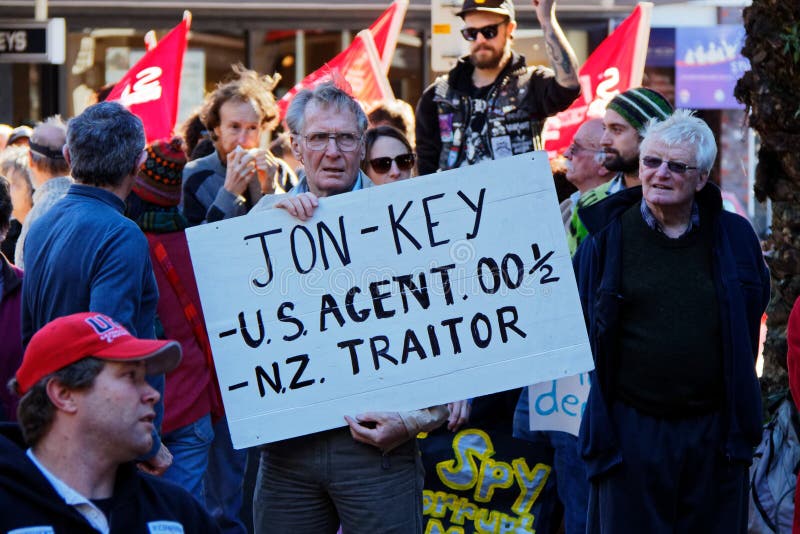
For a Brief Period, the Eyes of the World Were on NZ
“An international all-star lineup of the White House’s most loathed shared a stage in New Zealand’s largest city for a rally billed by the event’s host, Kim Dotcom, as the Moment of Truth. Bathed in red and white lights and cheered on by a capacity audience of about 1,500 at the Auckland Town Hall, the Internet entrepreneur turned political party founder sat alongside journalist Glenn Greenwald at a table emblazoned, in case there was any doubt, with the words ‘The Moment of Truth.’”
“On the big screen above, Greenwald’s source, NSA whistleblower Edward Snowden, was beamed in live from Moscow, while fellow fugitive Julian Assange peered from a screen beside him, also beamed in live from the Ecuadorian embassy in London. All were given thundering ovations from a crowd who, five days away from New Zealand’s general election, were energised by articles published hours earlier by Greenwald and Snowden alleging mass surveillance in New Zealand and duplicity on the part of the Prime Minister, John Key.”
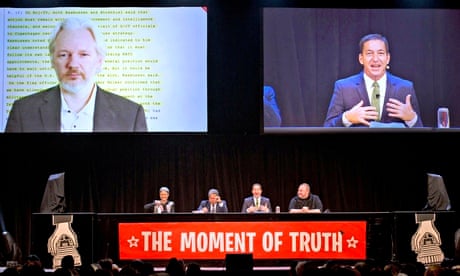
But that was very much an outlier. Despite having made the largest personal contribution to a political party in New Zealand’s history, Dotcom’s party got less than 1.5% of the vote in the 2014 election. It no longer exists. Nor does the party with which it aligned, as the latter’s sole MP was voted out.
And the issue of spying (let alone foreign policy or military policy) has not featured in any subsequent election campaign. As for Dotcom, he is still in New Zealand, living a very comfortable life on bail, awaiting the final decision from the Minister of Immigration on his extradition to the U.S. to stand trial (having lost every court case in New Zealand).
In June 2023, the last two Megaupload executives to face court were sentenced to prison in New Zealand, having done a deal to avoid extradition to the U.S. They pleaded guilty to charges of participating in an organized criminal group, conspiring to cause loss by deception and conspiring to dishonestly obtain documents. The prosecutor said the case dwarfed any other fraud case in New Zealand’s history and that, if Dotcom had stood trial in New Zealand and been convicted, he would have called for a sentence of at least 16 years in prison.

CovertAction Magazine is made possible by subscriptions, orders and donations from readers like you.
Blow the Whistle on U.S. Imperialism
Click the whistle and donate
When you donate to CovertAction Magazine, you are supporting investigative journalism. Your contributions go directly to supporting the development, production, editing, and dissemination of the Magazine.
CovertAction Magazine does not receive corporate or government sponsorship. Yet, we hold a steadfast commitment to providing compensation for writers, editorial and technical support. Your support helps facilitate this compensation as well as increase the caliber of this work.
Please make a donation by clicking on the donate logo above and enter the amount and your credit or debit card information.
CovertAction Institute, Inc. (CAI) is a 501(c)(3) non-profit organization and your gift is tax-deductible for federal income purposes. CAI’s tax-exempt ID number is 87-2461683.
We sincerely thank you for your support.
Disclaimer: The contents of this article are the sole responsibility of the author(s). CovertAction Institute, Inc. (CAI), including its Board of Directors (BD), Editorial Board (EB), Advisory Board (AB), staff, volunteers and its projects (including CovertAction Magazine) are not responsible for any inaccurate or incorrect statement in this article. This article also does not necessarily represent the views the BD, the EB, the AB, staff, volunteers, or any members of its projects.
Differing viewpoints: CAM publishes articles with differing viewpoints in an effort to nurture vibrant debate and thoughtful critical analysis. Feel free to comment on the articles in the comment section and/or send your letters to the Editors, which we will publish in the Letters column.
Copyrighted Material: This web site may contain copyrighted material the use of which has not always been specifically authorized by the copyright owner. As a not-for-profit charitable organization incorporated in the State of New York, we are making such material available in an effort to advance the understanding of humanity’s problems and hopefully to help find solutions for those problems. We believe this constitutes a ‘fair use’ of any such copyrighted material as provided for in section 107 of the US Copyright Law. You can read more about ‘fair use’ and US Copyright Law at the Legal Information Institute of Cornell Law School.
Republishing: CovertAction Magazine (CAM) grants permission to cross-post CAM articles on not-for-profit community internet sites as long as the source is acknowledged together with a hyperlink to the original CovertAction Magazine article. Also, kindly let us know at info@CovertActionMagazine.com. For publication of CAM articles in print or other forms including commercial internet sites, contact: info@CovertActionMagazine.com.
By using this site, you agree to these terms above.
About the Author

Murray Horton is organizer of the Campaign Against Foreign Control of Aotearoa (CAFCA) and an advocate of a range of progressive causes for the past five decades.
He can be reached at: cafca@chch.planet.org.nz.




[…] Via https://covertactionmagazine.com/2023/08/18/potential-kingmaker-in-new-zealands-october-election-say… […]